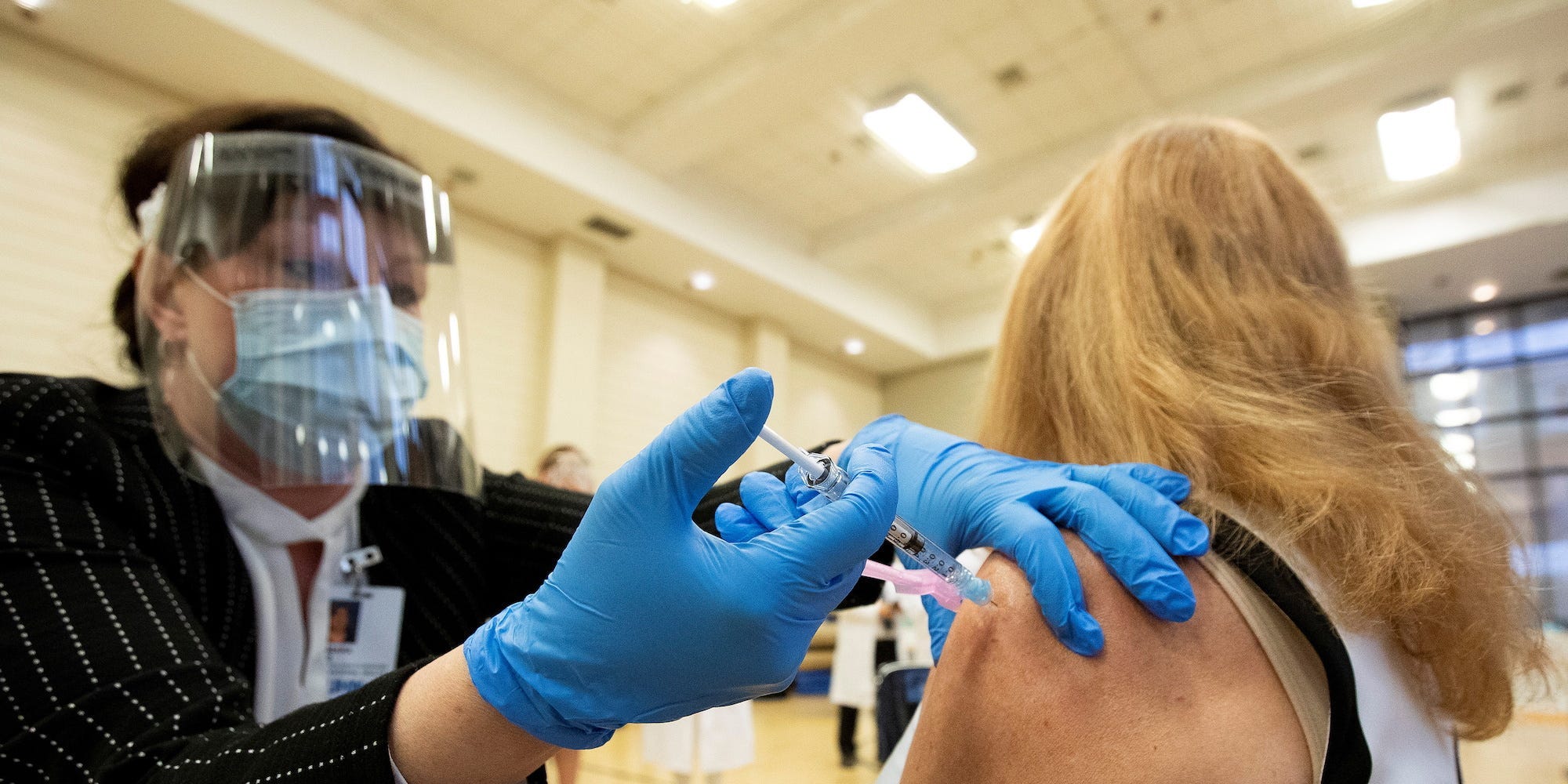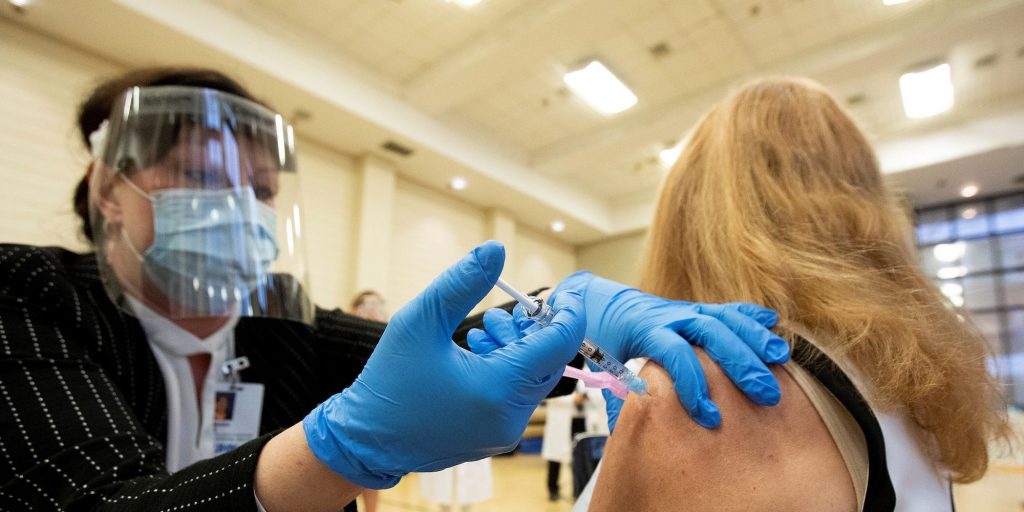
REUTERS/Carlos Osorio
- Canada has loosened its rules around mixing and matching COVID-19 vaccine doses.
- Evidence is mounting that using different vaccines for the first and second doses is safe and effective.
- The US still recommends against mixing and matching vaccines, except in "exceptional situations."
- See more stories on Insider's business page.
Canada has released guidance saying that mRNA vaccines from Pfizer and Moderna are interchangeable, and that an mRNA vaccine can safely be administered after a first dose of AstraZeneca vaccine.
The move from Canada's Public Health Agency comes in contrast to the guidance from the US Centers for Disease Control and Prevention, which recommends that vaccine mixing be avoided except in "exceptional situations."
Here are the acceptable combinations, according to Canada's new guidance:
- Preferred: Pfizer (first shot) and Pfizer (second shot); or Moderna (first shot) and Moderna (second shot).
- Acceptable: Pfizer and Moderna; or Moderna and Pfizer.
- Equally acceptable: AstraZeneca and AstraZeneca; AstraZeneca and Moderna; or AstraZeneca and Pfizer.
In other words, according to Canada's new guidance, people who received a dose of mRNA vaccine should be given the same vaccine if it is readily available, but an alternative brand of mRNA vaccine can be offered. Those who had an AstraZeneca vaccine for the first dose can also be the offered the same or an mRNA vaccine interchangeably, the guidance said.
The Canadian advice shows a clear preference for mRNA vaccines, namely those from Pfizer and Moderna. The AstraZeneca does not use mRNA technology.
The Canadian health agency also noted that due to the risk of people developing rare blood clots from the AstraZeneca vaccine, offering alternative vaccines was "ethically justifiable."
Canada currently uses vaccines from Pfizer, Moderna, and AstraZeneca, as well as Johnson & Johnson, which uses a single shot.
Mounting evidence that vaccine-mixing is safe and effective
Canada's updated guidance was based on rising evidence that mixing vaccines is safe and effective, including recent results from Spain, the UK, and Germany, the country's National Advisory Committee on Immunization (NACI) said in a press release.
Mixing brands of vaccines against the same illness is "not a new concept," and has been safely used to complete vaccination against the flu, Hepatitis A, and other diseases, NACI said.
Several countries, including France and Germany, have already recommended using alternative vaccines to the AstraZeneca shot in younger populations for their second dose - without waiting for scientific bodies to prove that it is safe - after unusual blood clots were seen in very rare cases after receiving the vaccine.
By contrast, the CDC has said that if vaccine mixing occurs, it should be considered an "administrative error" that needs to be reported to the national safety monitoring system.
